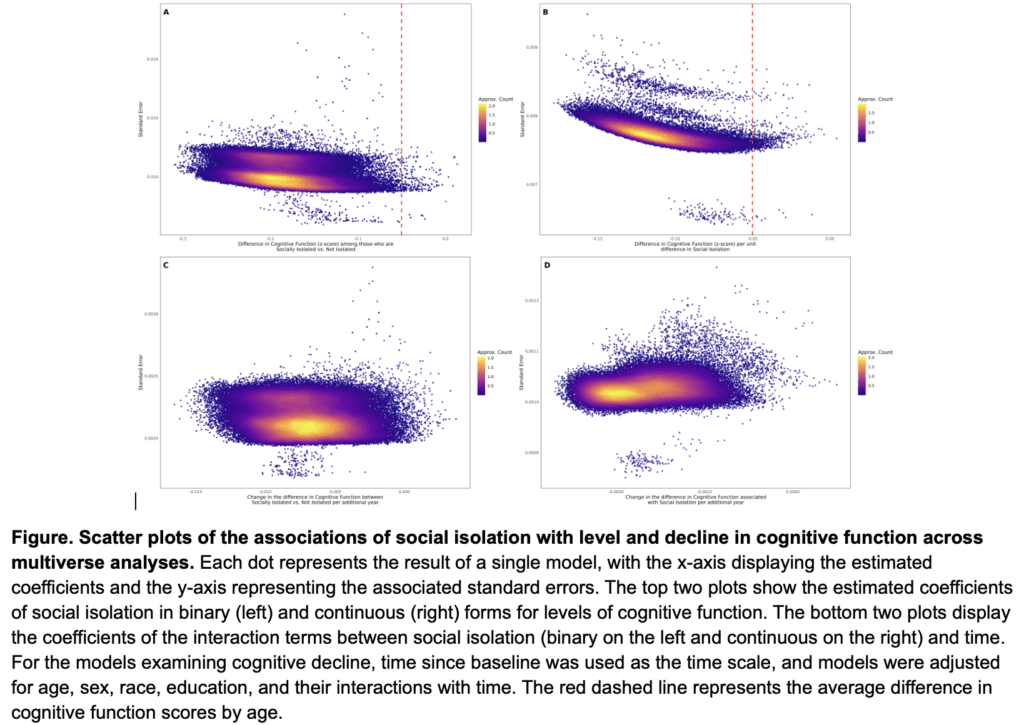Social
Social Isolation and Cognitive Aging: Are Operational Definitions Creating a Reproducibility Crisis? Ruijia Chen* Ruijia Chen Dylan Tran Jingxuan Wang Peter T. Buto Erin Ferguson Mary Thoma Scott Zimmerman Ashwin Kotwal Jacqueline M. Torres M. Maria Glymour
A substantial body of research on the impact of social isolation on health has emerged; however, conflicting findings are common, even when using the same data. Discrepancies may arise from methodological choices, including operationalization of social isolation. We conducted multiverse analyses to investigate how varying definitions of social isolation influence associations with cognitive function and decline.
Using the 2010 to 2020 Health and Retirement Study (n=12,975), social isolation was defined using 16 items related to marital status, living arrangements, social interaction frequency, and participation in social activities. We created continuous and binary composite scores for social isolation based on all possible combinations of these items (n=196,587 combinations), using top tertile and quartile cutoffs for the binary definitions. Cognitive function was assessed by the Telephone Interview for Cognitive Status, with scores standardized to baseline mean and SD. Linear mixed-effects models evaluated associations of each definition with cognitive level and decline.
Across all model choices, most models suggested a negative association between social isolation and level of cognitive function: point estimates ranged from very large to close to the null (e.g. associations with binary social isolation measures ranged from -0.31 to 0.01 SD of average difference across all binary social isolation specifications, see Figure). Most models indicated that social isolation was associated with faster cognitive decline (e.g. from -0.001 to 0.03 standard deviations average annual difference across the range of binary social isolation specifications).
While social isolation appears associated with lower levels of cognitive function and faster cognitive decline, the magnitude of these associations varies widely depending on how social isolation is defined.

